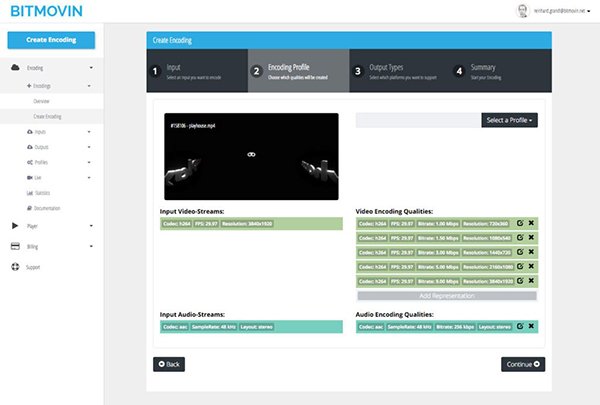When people are discussing that VR video needs 8K picture quality, stereoscopic rendering and light field technology in the future, Xiaobian’s mobile phones are still struggling to buffer a small video. If you want VR to be successful, these companies need to begin to deal with the pain of the development of high-quality streaming live streaming.

Bitmovin is now starting to address these issues through a technology called Adaptive Streaming, which dynamically adjusts video quality based on the user's device and network connections. The company said that this technology can decode 100 times faster than other services on the market today and provide higher quality output.
Stefan Lederer, executive director of Bitmovin, said: "There will be a lot of Oculus, HTC, and Sony headlights on the market this year, and 360-degree cameras such as Orah, Giroptic, and Nokia Ozo will enter the market. The way we make and watch videos will welcome A huge change."
Bitmovin hopes to enter this field before the competition. The company has just completed a $10.3 million Series A round of financing led by Atomico, and Lederer hopes to use this investment to accelerate the development of Bitmovin's adaptive streaming media delivery technology in new media like VR.

The start-up company has begun to provide services for some major brands in the VR field, but most of the company's energy is focused on the more traditional live streaming of video streams, and the company's various founders are rich in this traditional area. Business background.
Bitmovin's co-founder created the MPEG-DASH video transport standard, supports live streaming services like Netflix and YouTube, and accounts for 50% of US network traffic. Bitmovin's HTML5 player uses MPEG-DASH and HLS formats on many platforms, including desktop and mobile, as well as smart TVs and VR heads.